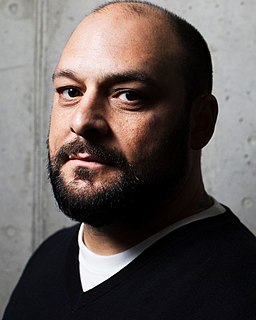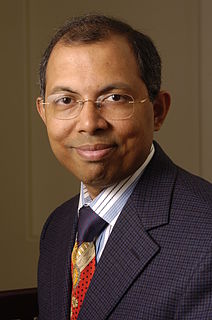Top 199 Empathize Quotes & Sayings - Page 4
Explore popular Empathize quotes.
Last updated on April 17, 2025.
We try to approach everything in Life After Hate and Exit USA with compassion. While we really promote approaching things with compassion and empathy, because that's what changed us, it's very difficult knowing there are very virulent, vile people who are focused on furthering the Donald Trump cause. Right now we're dealing with a lot of fake news, misinformation, propaganda, parody. My goal is still trying to reach people through compassionate means, and to get them access to real information. My goal is to share my story and get people out of their bubble, so they can empathize.
I think pain is a very - it's an extremely hard thing to empathize moment to moment. And you often don't remember your own pain, you know, that moment that you broke a limb or you burned yourself or, I think, this is a common thing that women talk about with childbirth, that the memory of the pain is hard to summon up and relive, thankfully.
One of the fundamental demonstrations of our natural instinct to Bond with each other is a will to give. Rather than domination, our most basic urge is to reach out to another human being, even at a cost to ourselves. Giving to others-the urge to empathize, to be compassionate, and to help others altruistically-is not the exception to the rule, but our natural state of being. Our impulse to connect with each other has developed an automatic desire to do for others, even at personal cost. Altruism comes naturally to us. It is selfishness that is culturally conditioned and a sign of pathology.
In a culture of electronic violence, images that once caused us to empathize with the pain and trauma of another human being, excite a momentary adrenaline rush. To be numb to another's pain - to be acculturated to violence - is one of the worst consequences our technological advances. That indifference transfers from the screen, TV, film, Internet, and electronic games to our everyday lives.
The best morals kids get from any book is just the capacity to empathize with other people, to care about the characters and their feelings. So you don't have to write a preachy book to do that. You just have to make it a fun book with characters they care about, and they will become better people as a result.
We all are born with a certain package. We are who we are: where we were born, who we were born as, how we were raised. We're kind of stuck inside that person, and the purpose of civilization and growth is to be able to reach out and empathize a little bit with other people. And for me, the movies are like a machine that generates empathy. It lets you understand a little bit more about different hopes, aspirations, dreams and fears. It helps us to identify with the people who are sharing this journey with us.
The love of wisdom is a way of life; that is to say, it's a set of practices that have to do with mustering the courage to think critically about ourselves, society, and the world; mustering the courage to empathize; the courage, I would say, to love; the courage to have compassion with others, especially the widow and the orphan, the fatherless and the motherless, poor and working peoples, gays and lesbians, and so forth - and the courage to hope.
I never wanted to grow a thicker skin; I felt a real sense of pride in my thin skin, and in a weird way, I still do, because it's my thin skin that allows me to empathize with other people. It's the thing that allows me to create vulnerable art. It's the thing that allows me to create other feelings and make songs that actually grab people and touch people. I feel like I've spent my life fighting that thicker skin because I don't want to become an embittered asshole.
If you and I are not having a dialogue, when you're having an argument, the reason the argument happen is because we are not listening to each other. Then, the argument comes in, but if we truly listen instead of hearing, argument will not happen. Then, we'll empathize, and then once the empathy kicks in, you will be much more inclining with my viewpoint and I'll be inclining with your viewpoint, and that's what is missing in organizations.
People don't get that being a musician is a job, they don't get what the work takes. And that's just because you're living a dream, so everyone who's observing it from the outside can't really empathize with how much work it is because you're fortunate. And it's a kind of competition with yourself to stay away from all of the excess, whether it's booze or drugs or just the late nights with the addiction to watching the sun rise in some weird part of the world. But when you meet the other musicians, there's generally a spiritual exhaustion that you connect with.
Facebook's a wonderful, incredible way to bring humanity together. They've brought together 2 billion people in the largest fictional family in history. So young people are starting to empathize with each other through Facebook across the globe. This is wonderful. However, when everyone needs Facebook because it's so successful that everyone's on it, then it starts to look like a global public utility, a public good. Same with Amazon.
Each one of us has lived through some devastation, some loneliness, some weather superstorm or spiritual superstorm, when we look at each other we must say, I understand. I understand how you feel because I have been there myself. We must support each other and empathize with each other because each of us is more alike than we are unalike.
Throughout my 20s I spent a lot of time just playing and not really working, but fortunately for me I continued to get just enough work, and have a reason to wake up in the morning. I really empathize with some of my peers who had success in the early years then it dries up, and so there's no reason to get up in the morning.
I remember Anthony Perkins saying, "Real is not necessarily interesting." So real is not enough. But what happens as an actor is that you're really trained to listen and to be open and have empathy. It's such a natural consequence that you end up being more political. You can empathize with the mother whose kids are going to be sent to Iraq, or you can emphasize with the mother who is losing their child to a disease. How could you not then be active? So you're automatically drawn to that aspect in the rest of your life.
Speciesism is a failure to empathize with those outside one's group. In general, speciesists simply disregard the myriad nonhumans whom humans intentionally hurt and kill. Who cares if millions of mice and rats are vivisected? They're 'only rodents'. What does it matter if billions of chickens live in misery until they die in pain and fear? They're 'just chickens'. They aren't human, so they don't count. Victimizers lack empathy for their victims, but absence of empathy doesn't justify victimization, whether the victims are human or nonhuman.
Even if someone doesn't look like you or you don't know people like this in your real life, you get to know them and you get to see their humanity and you get to empathize with them. Our hope is that through empathy that can spark change. We hope people start talking to each other and our show sparks conversation because we need to start talking to each other, not at each other.
The great thing about acting is, because you're constantly playing other characters and exploring yourself because you have to find those other characters in yourself, you sort of broaden as a person over your life because you've been other people. So you can empathize with many different sorts of people. It's great in that way and I hope, therefore, as you get older as an actor, you not only get more interesting because you lived more, but you get a bit wiser as a person.
Like no other illness, AIDS tests our ability to put ourselves in someone else's shoes - to empathize with the plight of our fellow man. While most would agree that the AIDS orphan or the transfusion victim or the wronged wife contracted the disease through no fault of their own, it has too often been easy for some to point to the unfaithful husband or the promiscuous youth or the gay man and say This is your fault. You have sinned. I don't think that's a satisfactory response. My faith reminds me that we all are sinners.


















